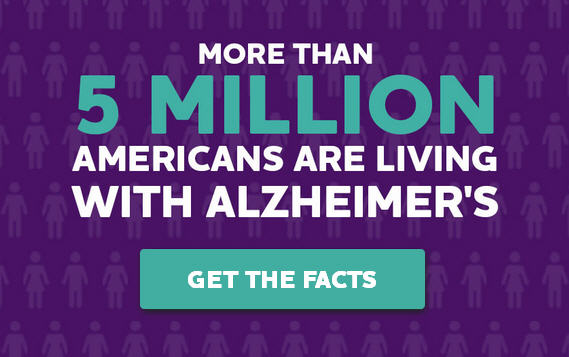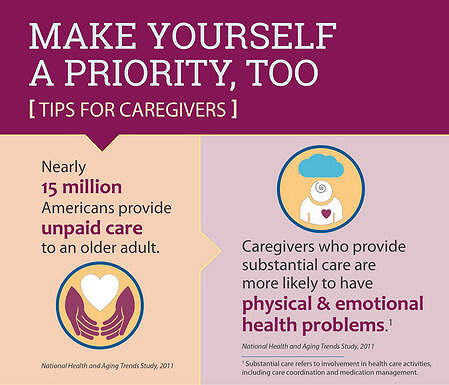(Mayo Clinic) When a loved one develops Alzheimer’s, knowing how and when to open up about it can be difficult. Follow these family caregiving tips for sharing an Alzheimer’s diagnosis.
If you’re caring for a loved one who’s been diagnosed with Alzheimer’s disease, you might wonder whether and how to tell loved ones and friends. If your loved one wants you to share the diagnosis, how will you do it? How will family and friends react? Will they know how to interact with your loved one? Consider these caregiving tips for sharing an Alzheimer’s diagnosis.
Getting Started
The period immediately after a loved one is diagnosed with Alzheimer’s disease can be stressful and frightening. You and your loved one might be struggling to come to terms with the diagnosis. Your loved one might not want to let other people know about the diagnosis out of fear that others will become uncomfortable around him or her. You might feel torn between wanting to respect your loved one’s privacy and feeling the need to talk to someone about the diagnosis and how your role as caregiver will change.
If possible, discuss with your loved one how he or she wants to handle the situation and get his or her permission before sharing the information. Ideally, you’ll explore the subject while your loved one is still able to express his or her wishes. If your loved one isn’t able to make decisions for himself or herself, ask his or her legal decision maker how your loved one would want the information disclosed and to whom. If you’re the legal decision maker and don’t know your loved one’s wishes, act in his or her best interests.
If you’re feeling anxious about sharing the diagnosis, keep in mind that those who are close to your loved one might already have a sense that something is wrong. If you’re afraid that your family won’t understand or that informing others about your loved one’s diagnosis will be a burden on them, consider the alternative. Keeping the diagnosis a secret could be draining for you. The sooner you tell family and friends, the sooner they can begin giving you and your loved one much-needed support.
What to Say
When telling family and friends about a loved one’s Alzheimer’s diagnosis, consider:
- Explaining the disease and its effects. Make sure your family and friends understand that Alzheimer’s is a disease in which brain cells degenerate and die, causing a steady decline in memory and mental function. It isn’t something your loved one can control. Explain the symptoms your loved one is likely to experience and how the disease might progress. Learning about Alzheimer’s might help family and friends feel more comfortable around your loved one, as well as prepare for the future.
- Sharing resources. Provide educational material from organizations such as the Alzheimer’s Association. Let family and friends know about any local support groups.
- Asking for help. Tell family and friends how they can help your loved one — and you. Give specific examples, such as taking your loved one to doctor’s appointments or picking up groceries.
If you’re explaining a loved one’s Alzheimer’s diagnosis to a child, consider his or her age and relationship to your loved one to determine how much information to share. You might say, “Grandma has a sickness in her brain that’s causing her to forget names.” Try to answer any questions simply and honestly and listen to the child’s concerns. Explain that feelings of sadness or anger are normal and that he or she didn’t cause the disease. Consider explaining what changes a child might expect to see in his or her loved one — such as not being recognized — and how this might affect the rest of the family.
Helping Family and Friends
Once you share your loved one’s diagnosis, explain what your loved one can still do and how much he or she understands. If necessary, you might offer suggestions about how family and friends can interact with your loved one, such as by briefly reintroducing themselves and avoiding correcting your loved one if he or she forgets something.
A young child might look to your example to know how to act around a person who has Alzheimer’s. Show that it’s OK to talk to your loved one and enjoy normal activities with him or her, such as listening to music or reading stories. Older children might have a harder time accepting the changes Alzheimer’s can cause and might feel uncomfortable spending time with a loved one who has Alzheimer’s. Avoid forcing the issue. Instead, talk openly and honestly about the child’s concerns and feelings.
Keep in mind that some family and friends might have trouble handling the diagnosis. They might feel uncomfortable around your loved one or drift out of your loved one’s life, despite your best attempts to help them feel comfortable.
Telling family and friends about a loved one’s Alzheimer’s diagnosis can be difficult. Being honest and providing information about Alzheimer’s disease can go a long way toward helping others understand the situation.

By Mayo Clinic staff
http://www.mayoclinic.com/health/sharing-alzheimers-diagnosis/MY01767
Copyright 1998-2017 Mayo Foundation for Medical Education and Research.







